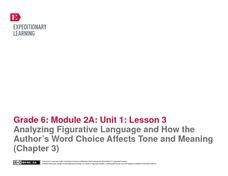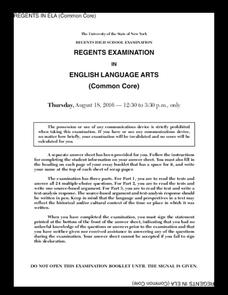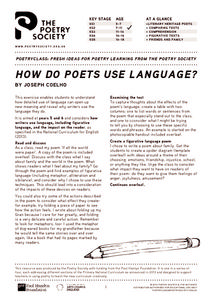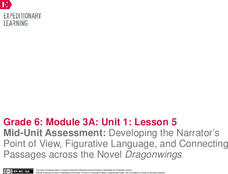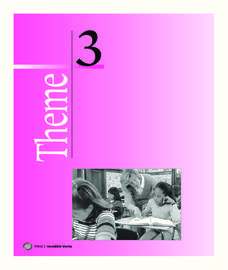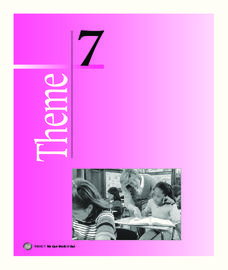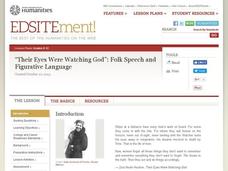Read Works
Figurative Language
Here's a richly detailed unit, designed for second graders, that focuses on decoding figurative language, including similes, metaphors, personification and idioms.
EngageNY
Analyzing Figurative Language and How the Author’s Word Choice Affects Tone and Meaning (Chapter 3)
How figurative language affects the tone and meaning in Chapter Three of Christopher Paul Curtis' Bud, Not Buddy is the focus of a series of exercises that ask readers to locate, record, and analyze Curtis' word choices.
EngageNY
Mid-Unit 1 Assessment: Figurative Language and Word Choice in Bud, Not Buddy (Chapter 5)
Individuals utilize the strategies practiced in the previous lesson to complete a mid-unit assessment on figurative language and how Christopher Paul Curtis uses word choice to create meaning in Bud, Not Buddy.
New York State Education Department
English Language Arts Examination: January 2016
An English Language Arts exam contains 24 multiple-choice questions that individuals answer after reading informational and literary passages. Scholars then write a source-based argument and text-analysis response.
New York State Education Department
English Language Arts Examination: August 2016
If it's true that preparation is the key to success, the English Language Arts Examination handout should help pupils ace their exams. Scholars read several texts and answer multiple-choice questions. Then, they write source-based...
New York State Education Department
English Language Arts Examination: June 2016
The English Language Arts Examination handout contains a variety of multiple-choice questions to assess reading comprehension, in addition to a source-based argument essay and text-analysis response prompts.
ReadWriteThink
Style-Shifting: Examining and Using Formal and Informal Language Styles
Your high schoolers are probably versed in two languages: formal language, and informal conversation. Help them identify the correct language style for their audience and context with a thorough lesson and examples of different speech...
EngageNY
Figurative Language and Word Choice: A Closer Look at Bud, Not Buddy (Chapter 2)
The difference between an average and an unforgettable writing can lie in the author's word choice. The figurative language in Chapter 2 of Christopher Paul Curtis's Newbery Medal Winner, Bud, Not Buddy, is the focus of a series of...
Knox Education
Opinion Argument Writing Packet
You won't need much persuading to use an argumentative writing packet in your language arts class! With helpful reference pages, guided practice through the writing process, examples of opinion and argument writing, and a thorough...
Madison Public Schools
Journalism
Whether you are teaching a newspaper unit in language arts, covering the First Amendment and censorship in social studies, or focusing on writing ethics in journalism, a unit based on the foundations of journalism would be an excellent...
Poetry Society
How do Poets Use Language?
Why do writers choose the language they do? Here's a resource that has the poet himself answer that very question. Joseph Coelho explains why he chose the words and images he used in his poem, "If All the World Were Paper."
New York State Education Department
English Language Arts Examination: June 2018
Is graffiti art? Writers explore that question as part of a source-based argument within a set of questions from the NY Regents examination. The assessment from June 2018, part of a larger set of standardized tests, consists of three...
Achieve3000
Figurative Language
Similes and metaphors make writing more beautiful and detailed, but can be a little harder to decipher during a first reading. Use a passage from The Man Who Loved Words to show young readers how to think through passages that contain...
Houghton Mifflin Harcourt
Talent Show: English Language Development Lessons (Theme 6)
This 32-page packet, the second in the series of support materials for the Houghton Mifflin Harcourt thematic entitled "Talent Show," is designed specifically to support language learners.
EngageNY
Preparing to Write Historical Fiction: Determining Characteristics of the Genre
A language arts instructional activity helps young writers identify elements that make up historical fiction. First, it guides them through elements of fictional pieces with vocabulary cards. Then, pupils work collaboratively to...
EngageNY
Mid-Unit Assessment: Developing the Narrator’s Point of View, Figurative Language, and Connecting Passages across the Novel Dragonwings
Let's get creative! As part of a mid-unit assessment, scholars create a piece of artwork illustrating the theme from Laurence Yep's novel, Dragonwings. Additionally, pupils use a graphic organizer to identify figurative language in the...
Houghton Mifflin Harcourt
Incredible Stories: English Language Development Lessons (Theme 3)
English language learners get extra help understanding the language and concepts in a thematic unit on fantasy and realism from a 40-page packet filled with activities, exercises, and tips.
Houghton Mifflin Harcourt
We Can Work It Out: English Language Development Lessons (Theme 7)
Listen, look, speak, and move are the routine steps of the English language development lessons found in a We Can Work It Out themed unit. Language proficiency is reinforced through picture cards, poems, and grand discussions about...
Houghton Mifflin Harcourt
Animal Adventures: English Language Development Lessons (Theme 6)
Provide extra support for language learners as they progress through the Houghton Mifflin Harcourt thematic units on animal adventures. This 30-page packet includes scripted lessons designed for beginning, emergent, intermediate, and...
Center for Open Educational Resources and Language Learning
Reading Activity
Ready to integrate technology into your ELL instruction? Check out this reading lesson that has language learners using the Internet and apps, joining online book clubs, and creating blogs. A fine model of what can be done.
Houghton Mifflin Harcourt
Around Town: Neighborhood and Community: English Language Development Lessons (Theme 3)
Here is a unit designed to support English language development. Scholars speak, move, and write to learn more about topics that focus on community and local concepts. The series of lessons aids to reinforce concepts including consonant...
Houghton Mifflin Harcourt
Smart Solutions: English Language Development Lessons (Theme 6)
Smart Solutions is the theme of a unit created to meet the needs of English language earners. Through a series of lessons, scholars follow a routine—move, speak, and listen— to cover topics including stores, shops, celebrations, pets,...
Houghton Mifflin Harcourt
Off to Adventure!: English Language Development Lessons (Theme 1)
Give language skills a boost with a series of ESL lessons in an Off to Adventure! themed unit. Using a speak, listen, move, and look routine, scholars enhance proficiency through grand conversation and skills practice. Discussion topics...
Curated OER
"Their Eyes Were Watching God": Folk Speech and Figurative Language
Using or considering using Zora Neale Hurston's Their Eyes Were Watching God? Then this packet is a must for your curriculum library. The examination of how Hurston combines folklore and folk language to create the voice of her...
Other popular searches
- 5th Grade Language Arts
- 3rd Grade Language Arts
- 4th Grade Language Arts
- Second Grade Language Arts
- English Language Arts
- 1st Grade Language Arts
- Kindergarten Language Arts
- Language Arts Jeopardy Game
- First Grade Language Arts
- Language Arts School Projects
- Language Arts Lesson Plans
- Language Arts Games



